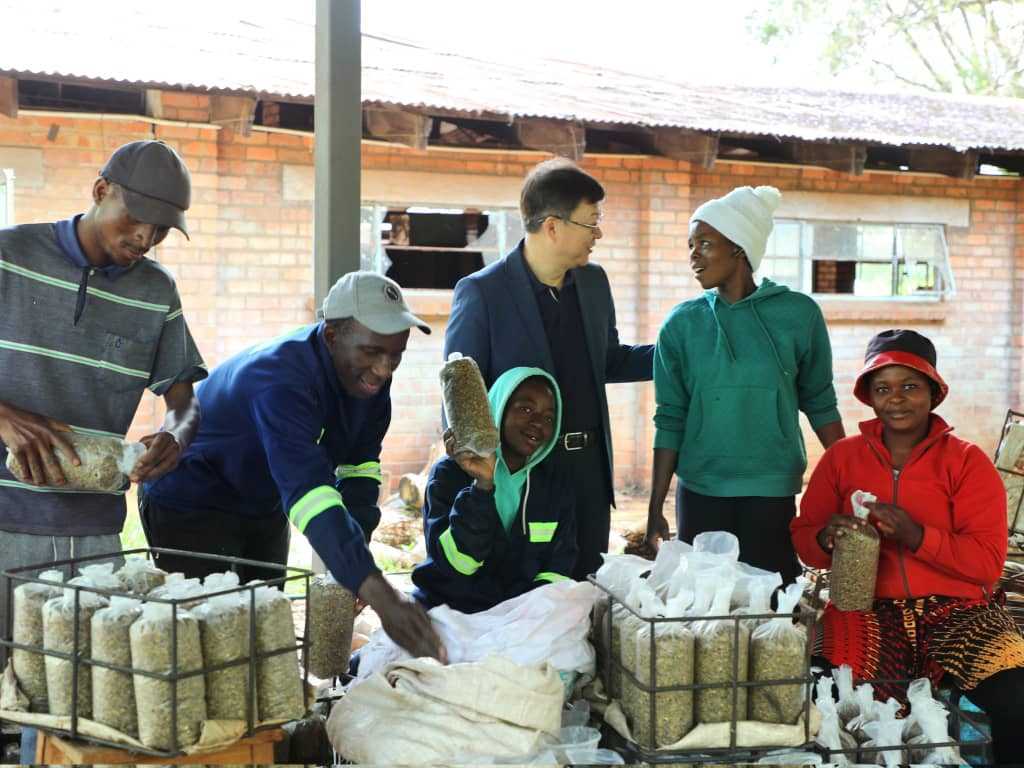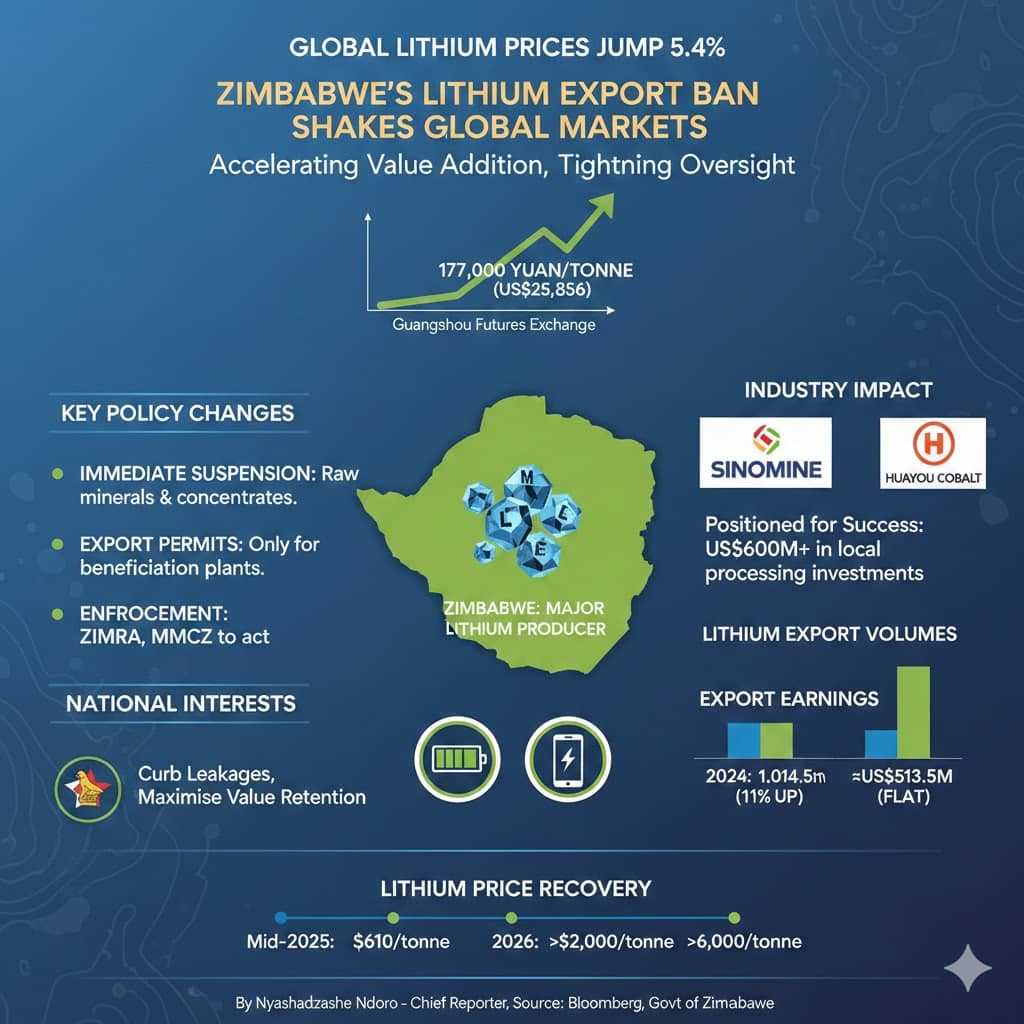
During a recent visit to the China-aid Juncao Technology Project in Zimbabwe, Chinese Ambassador Zhou Ding highlighted the remarkable progress achieved since the initiative’s launch earlier this year. The visit offered a firsthand look at how this innovative agricultural technology—popularly known as “magic grass”—is already providing tangible benefits to local communities through its unique versatility in livestock feed production, mushroom cultivation, organic fertilizer generation, and environmental conservation.
Juncao, a technology pioneered in China, has earned global recognition for its multifunctionality and its remarkable ability to thrive under varied ecological conditions. Often called the “grass of happiness,” it represents a model of low-cost, high-impact agricultural innovation. Ambassador Zhou’s remarks emphasized that the project in Zimbabwe is not merely a technical demonstration; it is an investment in rural livelihoods, environmental stability, and sustainable development. Since its launch in February, the project has established 25 demonstration sites across the country and conducted 14 training sessions, rapidly building local capacity.
The practical applications of Juncao speak directly to Zimbabwe’s development needs. For livestock farmers, Juncao provides a reliable and affordable feed source that can be cultivated on relatively small plots of land—an important advantage in a country where grazing pressure and land degradation remain persistent challenges. For mushroom production, Juncao serves as an environmentally friendly substrate that reduces reliance on wood and helps curb deforestation. The spent substrate then becomes a valuable organic fertilizer, strengthening soil health and supporting crop production. Additionally, the plant’s strong root structure makes it a powerful tool for combating soil erosion and conserving water resources—both critical in drought-prone and environmentally fragile areas.
Related Stories
The early achievements of the Zimbabwe initiative underscore how quickly Juncao can be integrated into local agricultural systems when supported by technical expertise and structured training. Chinese specialists stationed in Zimbabwe have played a central role in guiding farmers, students, and agricultural officers through hands-on demonstrations, enabling communities to adopt the technology with confidence. Ambassador Zhou’s commendation of their work reflects the broader vision behind the project: a fully localized and community-driven model where Zimbabwean farmers can independently expand production, innovate with the technology, and develop local value chains.
Although the Zimbabwe project is still in its initial phases, it builds on a solid foundation of global experience. Over the past two decades, Juncao technology has taken root in more than 100 countries across Asia, Africa, and the Pacific. Its impact in other regions—in areas such as poverty alleviation, job creation, climate resilience, and small-scale entrepreneurship—provides a glimpse of the long-term potential for Zimbabwe. Countries like Rwanda, Papua New Guinea, and Lesotho have demonstrated how Juncao can evolve into a viable commercial sector, supporting mushroom cooperatives, livestock enterprises, and environmental rehabilitation programs. These examples, though referenced only in passing, illustrate the technology’s adaptability and provide context for Zimbabwe’s own trajectory.
For Zimbabwe, the promise of Juncao aligns closely with national development priorities. The technology offers new opportunities for rural households to diversify their incomes, strengthen food security, and utilize land more sustainably. It also supports youth and women’s economic empowerment, as mushroom cultivation and organic fertilizer production are activities that require limited land and start-up capital. Beyond economic gains, Juncao contributes to environmental management—an increasingly urgent concern in the face of climate variability and land degradation.
The China-aid Juncao Technology Project therefore represents more than a technical partnership; it is a symbol of deepening South-South cooperation and a practical example of how shared innovation can accelerate sustainable development. Zimbabwe’s progress in just a few months reflects both the adaptability of the technology and the enthusiasm of local communities eager for solutions that are accessible, resilient, and environmentally friendly.
As Ambassador Zhou’s visit demonstrated, the foundations have been firmly laid. With continued training, community engagement, and institutional support, Juncao has the potential to become a transformative force in Zimbabwe’s agricultural landscape—empowering communities, enhancing food systems, and building a more sustainable future grounded in the simple yet extraordinary power of “magic grass.”



















Leave Comments